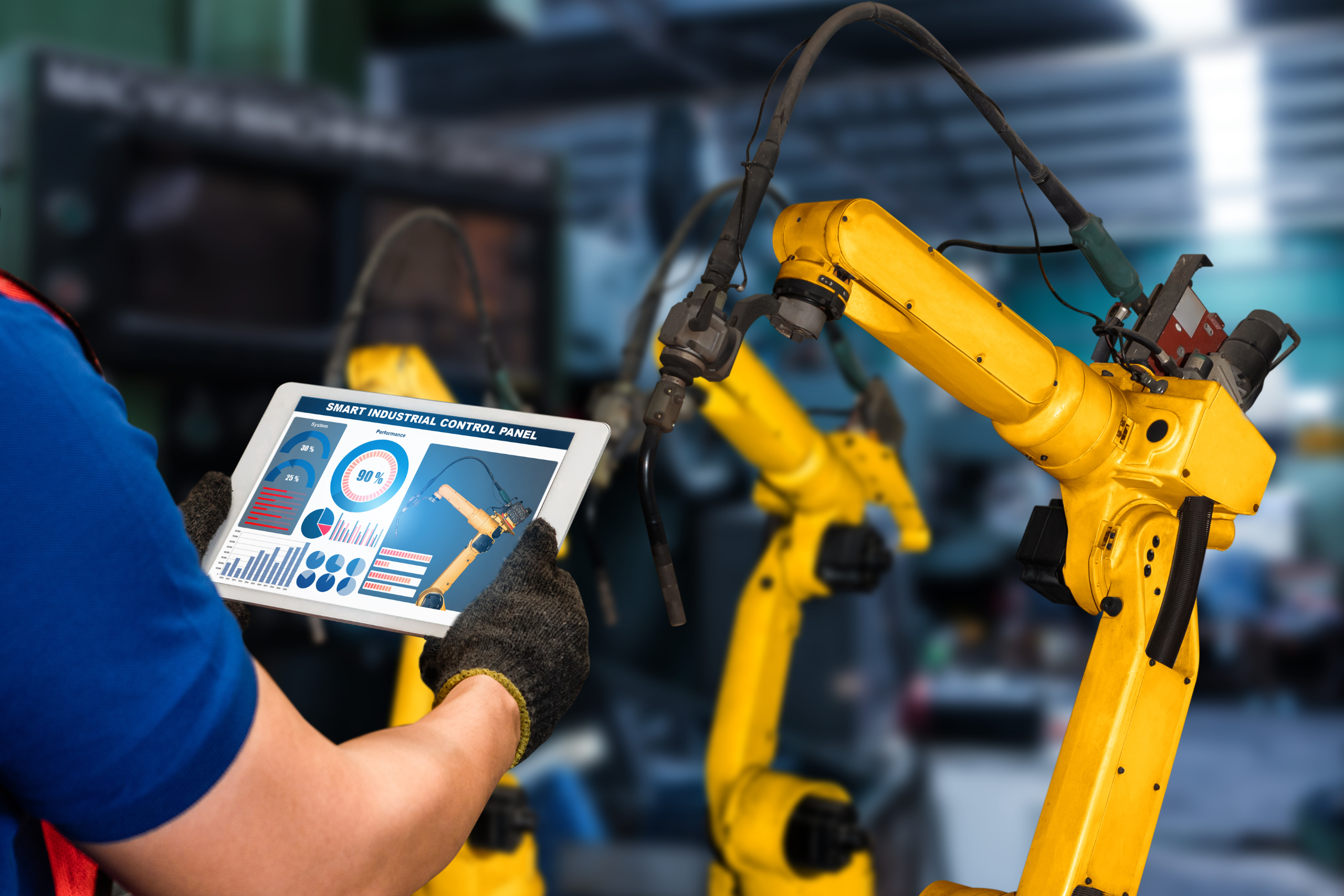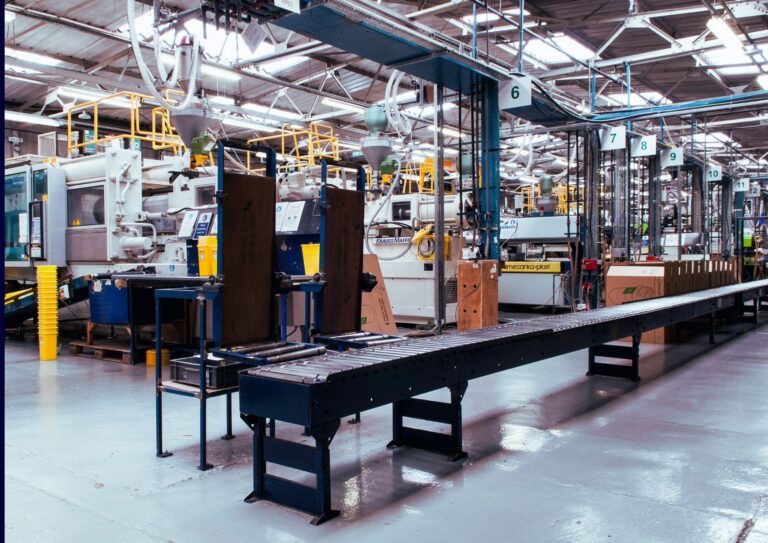Robotics in industry and how it is transforming business processes
Industrial robotics is the deployment of automated machines and robots that perform a variety of tasks, from assembly and welding to quality control and packaging. These robots are programmed to perform activities that traditionally require human intervention, but with greater speed, accuracy and consistency.
Perhaps when you hear robots and machines you imagine a Terminator-caliber apocalypse, but in reality (at least for now) in modern industry, robots play a key role as they can work 24/7 with an impressive precision and consistent efficiency. They do not tire, perform their tasks with impeccable accuracy and reliability, thereby significantly reducing production costs and increasing productivity. Already in the early years of Industry 4.0, talk began about the so-called "dark factories" or those in which production is fully automated and does not require the presence of human labor. Futuristic or not, for enterprises, robots are impeccable "employees" who, with their constant contribution, support the development and increase the competitiveness of companies.
In Bulgaria, although the pace of implementation of robots and automation is slower, enterprises are beginning to recognize the benefits of these innovations and are increasingly integrating them into their production processes. In this article, we will look at how robotics is developing in our country and what are the prospects and challenges for business.
Robotization in Bulgaria: status and trends
On a global scale, the level of robotization in industry is measured by the number of industrial robots per 10,000 persons employed in production. According to data of The International Federation of Robotics (IFR), Bulgaria is among the countries in Europe with a lower level of industrial robotization. In 2022, Bulgaria has about 18 industrial robots per 10,000 employed persons, while the European average is 106 robots. However, these numbers are slowly increasing as businesses across the country begin to recognize the benefits of automation.
Industry 4.0 set in motion an unprecedented modernization and digitization of the global industry, including in Bulgaria. In some industries, such as the automotive industry and electronics manufacturing, the level of robotization is significantly higher. Companies like “Huskvarna Bulgaria" and "Bader Bulgaria', which are part of international corporations, and which RTIK is proud to call its members, are actively implementing robots in their production processes, from the production of components and assembly of products to the processing, cutting and stitching of leather goods. On the other side – creators of robotic solutions for business and RTIK members such as SIVIKO, Bullitt Engineering J.S.C. and SL Industries Ltd, are just some of the names in the industry that contribute to the successful robotization and digitization of Bulgarian businesses in the region, in the country and abroad. In addition, national level organizations such as The Professional Association for Robotics, Automation and Innovation (PARAi), actively helps to popularize robotics in our country, uniting over 80 technological companies in Bulgaria, and is the first point of contact for its members for many opportunities such as pilot projects, product export, raising funding and launching joint activities.
Here is a short video of SIVIKO's successfully implemented projects for robotic palletizing of boxes with vacuum grip:
Benefits of robotization for Bulgarian business
With the introduction of robotization, Bulgarian companies undoubtedly have the opportunity to increase their competitiveness in international markets. Here are some of the main benefits:
- Robots work continuously and increase the volume of production, which gives companies a competitive advantage and can significantly increase their productivity.
- Robots perform tasks with high precision, reducing errors and ensuring better product quality.
- Despite the initial investment, robotization leads to long-term savings from lower labor costs and waste, and thus lower production costs.
- Robots reduce the risk of occupational accidents by taking over dangerous and risky tasks.
- Industrial robots can be easily reconfigured to perform different tasks, which is useful for rapidly changing market conditions.
- Robotization encourages the introduction of new technologies and the creation of innovative products and business models, pushing it to be more innovative in the long run.
- Robots compensate for the lack of skilled workers, allowing businesses to continue to grow without being tangibly dependent on labor market shocks such as labor shortages.
- Automated processes reduce energy costs and waste, supporting the environmental responsibility of business and improving its sustainability.
Despite the many advantages that robotization offers for business, its introduction in Bulgaria faces a number of difficulties. Some of these challenges are related to the high initial investment, the shortage of skilled labor, the delayed process of digitization, regulatory and legal challenges, as well as the lack of adequate infrastructure for innovation. According to a 2023 Eurostat study, only about 9% of manufacturing enterprises in Bulgaria use robots or other forms of automation, while in Germany and Italy this share exceeds 30%. Although the Bulgarian industry lags behind the leading countries in Europe, the prospects for the development of robotics are positive, with constant growth in investments in new technologies.
Robotization represents a significant step forward in the transformation of the industrial sector in Bulgaria. With the increasing importance of automation, companies that integrate robots into their production processes have the opportunity to increase productivity, product quality and competitiveness in the global market. Despite the challenges faced by Bulgarian business, the advantages of robotization cannot be ignored, we already have evidence that this can also happen in an affordable way. Despite the fact that the pace of implementation is slower compared to other European countries, the Bulgarian industry is starting to orient itself towards automation, which is a promising sign for the future of the manufacturing sector in the country.
If topics such as digitization, robotics, Industry 4.0 are of interest to you, we invite you to learn more about our active initiatives in these areas such as the projects Digital Twin and BeDigital, where we work on creating quality educational content accessible to everyone. In the event that you wish to learn more about robotics and implementation in business as well as to meet representatives of successful integration of such projects, very soon you will have the opportunity to do so face to face at our planned events for the month of November 2024. Follow section "Events" on our website for more information.






